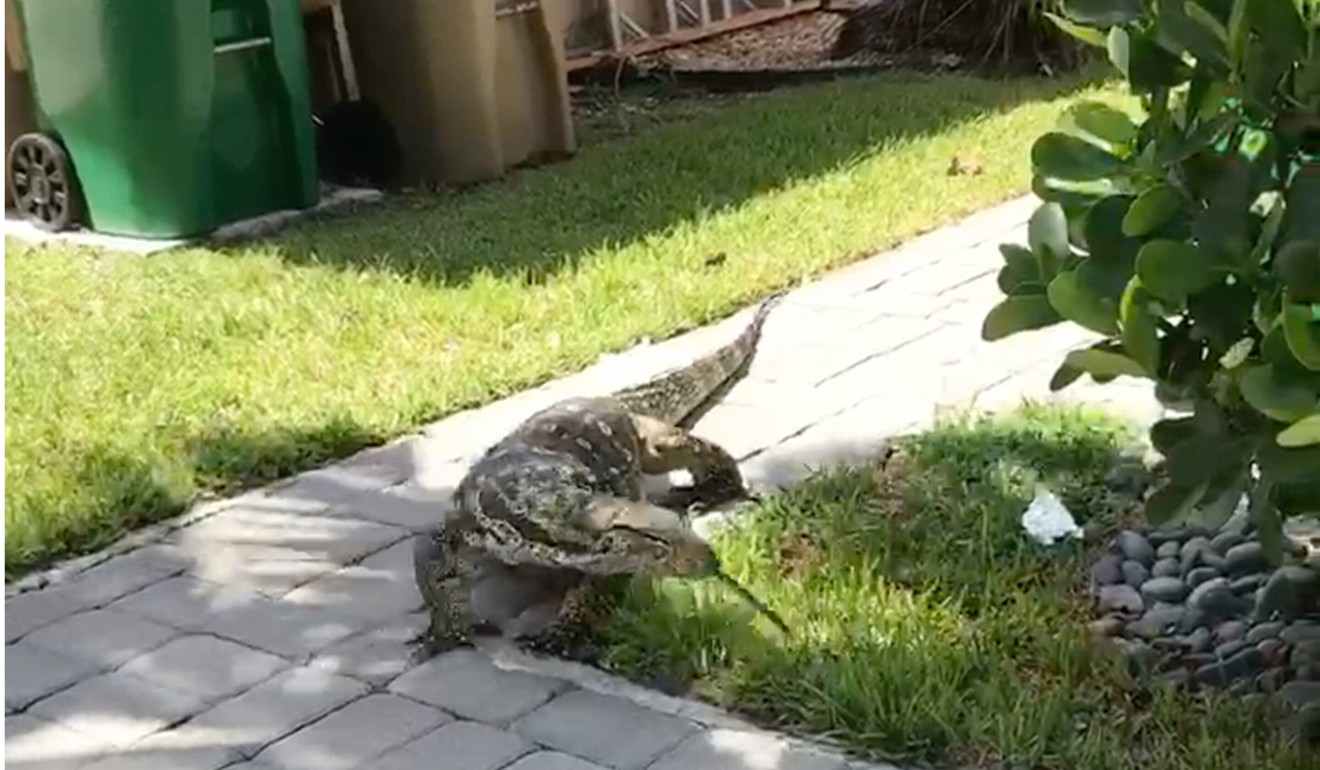
An alligator-sized monitor lizard is terrorising a Florida family with repeated visits
Efforts to hunt down the 2-metre-long reptile have been unsuccessful
A terrified Florida family has enlisted the help of trappers, hunting dogs and state wildlife officers to try to catch an enormous monitor lizard that has made repeated visits to their home in Davie.
It’s an estimated 2 metres long, weighs approximately 70kg and has shown up in their backyard at least three times in the last two weeks, said Zachary Lieberman.
“It’s scary,” he said. “It’s big.”
The Liebermans live near the Pine Island Ridge Natural Area.
“It’s probably somebody’s pet that got loose,” he said.

So far, efforts to lure the alligator-sized lizard have been fruitless despite bait in the form of dead rodents and chicken thighs hanging from a tree.
The lizards are not known to attack people, but Lieberman takes no comfort in that because he has a two-year-old son and four-year-old daughter.
“I’m more afraid of it than I would be an alligator because of my small children,” he said. “On Sunday it was right at my back (patio door) window kind of scratching to get inside the house.”
A couple of dogs were brought in to track it and they found a burrow the reptile may call home.
“The dogs know what they’re doing,” he said. “They’re hunting dogs.”
Two officers with the Florida Fish and Wildlife Conservation Commission were using a video camera scope to check inside the burrow Wednesday but found nothing.
Lieberman has been told the lizard probably makes return visits because it can smell prey.
“The FWC (officers) said it’s because of the scent of mammals,” he said. “There’s a lot of raccoons in the area and they like to terrorise my garbage can, so that could be one of the reasons why.”
Such large lizards can be dangerous when cornered, so the state discourages members of the public from attempting to catch them.
Once captured, the lizards are either turned over to licensed wildlife facilities or killed, officials said.
Lieberman said he doesn’t necessarily want the reptile harmed, just gone.
“The quicker we get it, the quicker my kids can go back in the pool and enjoy our backyard, because right now they’re scared,” he said.

